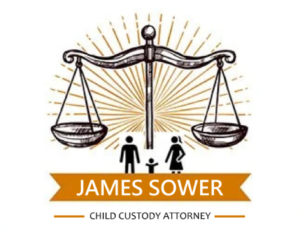How to get custody of a child
As parents, we all want the best for our children and our family. California courts also consider the best interests of the child before granting a custody order.
However, things could get complicated if you find yourself in the middle of a child custody case facing a California court case. Because to the court, your child’s best interest may not be as simple as awarding custody to a specific parent. As a general rule, courts favor equal time sharing between parents. But divorce is a complicated and hotly contested dispute, and the circumstances vary significantly from case to case.
If the courts determine that the other parent is not eligible to obtain custody of the child, they will grant the other parent full custody of the child. If you are seeking full custody of your child in California, you need to know how California law and courts grant custody orders.
What is child custody?
Child custody refers to the care, custody, and maintenance of the child after the parents have divorced. Custody of children may be awarded to both parents jointly or it may be awarded to one parent exclusively. In the latter case, the other parent usually gets visitation rights.
The decision of which parent will get custody depends on several factors that determine the best interests of the child. Suppose the courts find that one parent is incapable of caring for his or her children financially or emotionally. In that case, they will consider the best interests of the child and award custody to the suitable parent.
How is child custody determined in California?
Under California law, either parent can obtain custody of their child or both parents can share custody. The judge will decide on custody and visitation without a custody agreement between both parents. The judge can also issue his verdict only after the parents have met with a mediator from Family Court Services (FCS), based on whose recommendations the judge will decide the matter.
California law recognizes two types of custody orders, which are:
-
Legal custody
- Legal custody refers to the right and responsibilities of parents to make important decisions for their children. These decisions concern the child’s education, health care, and well-being.
Legal custody can be divided into Joint Legal Custody or Sole Legal Custody. In the first, both parents share the right and responsibility to make decisions regarding their child. In sole legal custody, only one parent has the right and responsibility to do so.
Physical custody
Physical custody refers to the parent with whom the children may live. Physical custody can also be divided into Sole Physical Custody and Joint Physical Custody. In sole physical custody, children live with one parent, while the other gets visitation rights to spend time with their child. Under joint physical custody, children live with both parents, although time cannot be divided equally.

In California, the judge will decide the best interest of the child based on the following factors:
- Child’s age;
- The health of the child;
- The emotional relationship between the child and the parents;
- The ability of each parent to care for the child;
- History of substance abuse or domestic violence by either parent; and
- The child’s relationship with his community.
How to win custody of a child in California?
The best way to resolve a child custody problem is an amicable agreement between both parents. Once the parents decide on custody and visitation rights, the judge approves the agreement and signs it, making it an enforceable court order.
However, this is not always possible. This is where the court comes in. When parents cannot decide, the court will ask them to attend a mediation session with an FCS mediator. If the mediator is unable to resolve this issue, then the judge will decide the visitation and custody schedule, which will be enforceable.
There are some cases where the court requires a third-party child custody evaluator to evaluate the custody request and recommend an appropriate parenting plan. In this case, parents may be required to pay for evaluation services.
Any parent seeking full custody of the child must present persuasive evidence of his or her ability to care for the child. The courts will investigate whether the child’s best interests align with your custody request. However, for the welfare of the child, courts are inclined to grant joint custody of the child unless the other parent is proven unfit to do so.
The parent seeking to obtain full custody of the child must provide compelling evidence to support his or her case.
Reasons for granting sole or full custody
As mentioned above, courts will only award sole custody if they are convinced beyond a doubt that the other parent is unfit to take responsibility for the child. The judge may award full custody of the child if he or she is satisfied that the other parent:
- Has committed domestic abuse;
- Has committed child abuse;
- Has made false accusations of abuse;
- Has a substance abuse problem;
- Emotionally abuses the child; and
- has never taken care of the child;
How to get child custody as a father?
Family Code 3040 specifically prohibits any child custody order that is biased toward one parent based on his or her sex. This practically means that the court will only consider the best interest of the child in awarding custody and will not form a preference toward one parent because of their sex.
Therefore, it is clear that you, as a parent, can obtain sole custody of your child, depending on the circumstances. Here it is essential that you know the reasons why you can obtain a favorable custody order.
Before granting sole custody to a parent, the judge will investigate that parent’s suitability to care for and support their child. As a father, you can obtain sole custody of your child if the mother:
- He refuses to share paternity of the child;
- It belittles the father towards the child;
- Levels false accusations of abuse; either
- It alienates children.
Spending quality time with your children is an important part of gaining full custody. You cannot expect to win sole custody if you have not spent time with your children before the divorce. The judge will only consider granting sole custody to the father when the child feels comfortable with the father and it is in his or her best interest to live with the father.
If the mother refuses to co-parent or gives you additional time to spend with the children, you should seek the help of an experienced child custody attorney. Even if your case has begun and you feel that it is not progressing as desired, you should look to retain a proven attorney who can guide you and get your case back on track.
How to obtain custody as a mother?
People have the misconception that courts favor mothers when it comes to child custody. But this is simply not the case. Winning custody of children solely based on the gender of the parents is prohibited under Family Code 3040.
Even for the mother, sole custody will only be granted when the court firmly believes that it is in the best interest of the child to live with the mother. You can get full custody if it is proven that the father:
- Have a history of domestic abuse or substance abuse;
- Has a history of emotional abuse towards children;
- He is under the care of the child; and
- It is a flight risk.
The list is not exhaustive, but it paints a fair picture of how courts determine the best interests of the child in custody matters.
Steps to Win Child Custody in California
If you are seeking full custody of your child as a parent, you should be aware of the steps involved in the litigation process, which includes:
-
Preparation
The first step is preparation for the case. You and your attorney should strategize after determining whether you want sole or joint custody.
-
archive
You must file a family law case before seeking custody of your children. This could be a divorce, paternity or custody case.
-
Ex parte orders
Ex parte orders are also known as temporary orders. These orders are obtained if the child is at risk. The court will issue a temporary emergency order that will be in effect until the final verdict.
-
Orientation
Some California counties, such as Los Angeles, require both parents to take a brief orientation course before their custody case.
-
Mediation
A court-appointed mediator from Family Court Services (FCS) will meet with the parents to formulate a parenting plan agreed upon by both parties. In this case, the judge will sign the agreement, and it becomes a court order. If the parents do not agree, the mediator provides recommendations to the judge regarding the same. Lawyers for both parties cannot attend the mediation.
-
Audience
After mediation, the parties attend an initial hearing where facts and evidence are presented before the judge to determine the next step. There may be multiple hearings, depending on the circumstances.
-
Conference
Las conferencias son reuniones que tienen lugar entre los padres y el juez. Este es nuevamente un esfuerzo para ayudar a los padres a llegar a un acuerdo amistoso y evitar litigios.
-
Proof
During the trial, both sides present evidence and question witnesses so that the judge can rule. Depending on the complexity of your case, the hearing lasts days or even months. The trial ends when the judge announces his final decision, which is considered the final custody order.
-
Final order
The trial ends when the judge signs the final custody order. It is an enforceable parenting plan that sets out all the details of custody, visitation, and support.
If either party is dissatisfied with the decision, they can appeal the order to a higher court or file a motion to vacate the order.
Tips to Increase Your Chances of Winning Child Custody
As a parent, you must be responsible to your children and respectful to the other parent if you want full custody of the child. Here are some points to keep in mind that will increase your chances of obtaining custody:
- Make sure you spend time with your children;
- Be willing to work with the other co-parent;
- Participate in your children’s education;
- Make sure your child feels comfortable at home;
- Exercise your parental rights;
- Share all medical and other information with the co-parent, regardless of how minor it may seem;
- Keep all documents and written communications with your spouse;
- Support the co-parent’s relationship with your child; and
- Remain calm and composed in the courtroom and mediation sessions.
Consult with a Child Custody Lawyer Today
Things get complicated when parents can’t agree on custody and visitation rights. It is best to have an expert child custody attorney who can help you understand the legal procedure and your rights.
Dolores Lopez is one of the best child custody attorneys in Orange County who can help you obtain child custody and visitation rights. Serving Los Angeles, San Diego and Riverside Counties, she is knowledgeable and highly experienced in handling all family law matters.
Call 714-733-7065 for a free consultation session today.



